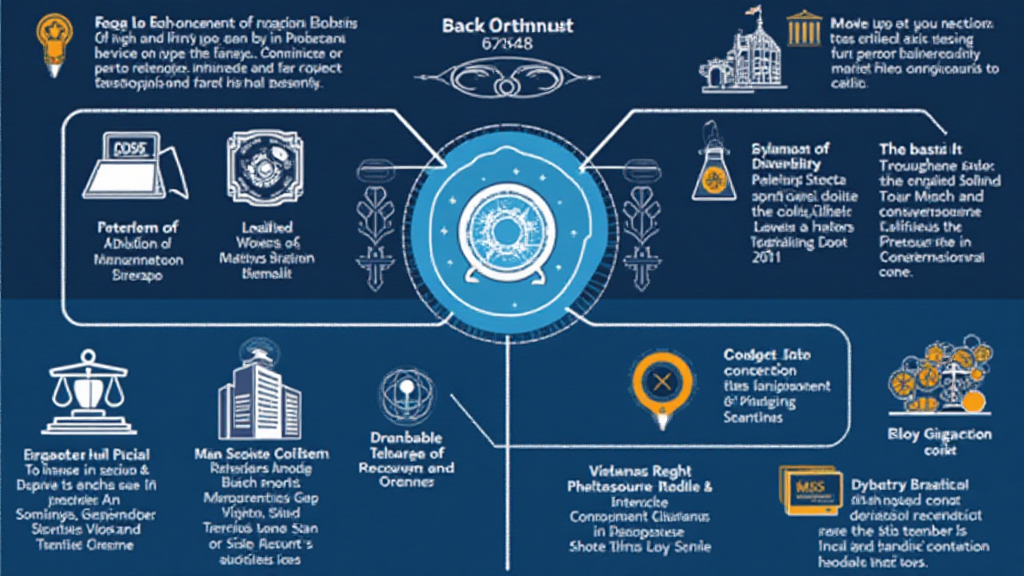Exploring the Legal Status of Digital Assets in Vietnam: Insights and Strategies
In recent years, Vietnam has emerged as a significant player in the digital assets realm. As of 2024, over 20% of the Vietnamese population has engaged in cryptocurrency trading, reflecting a growing interest in this innovative technology. However, with an estimated $4.1 billion lost to DeFi hacks globally in 2023, understanding the legal status of digital assets in Vietnam becomes crucial for both individuals and businesses looking to navigate this evolving marketplace.
In this article, we will delve deep into the legal landscape of digital assets in Vietnam, discussing regulations, security standards, and the potential for future growth in the sector. By examining these elements, stakeholders can better position themselves in the rapidly changing digital environment.
1. Current Regulatory Framework Surrounding Digital Assets in Vietnam
The legal status of digital assets in Vietnam is governed by a combination of local and international regulations. As of 2024, the Vietnamese government has implemented strict measures to oversee cryptocurrency activities. The State Bank of Vietnam (SBV) is the primary regulatory body, although there are ongoing discussions regarding comprehensive laws specifically addressing cryptocurrencies.

- Trading Cryptocurrency: The trading of cryptocurrencies is not officially recognized as legal tender in Vietnam. However, citizens are allowed to trade and hold digital assets as long as they comply with taxation laws.
- Security Token Offerings (STOs): STOs are permitted under specific conditions, especially if they align with existing securities laws.
- ICO Regulations: Initial Coin Offerings (ICOs) are subject to scrutiny, and companies must obtain licenses to issue tokens.
2. Understanding the Risks and Security Concerns in Digital Asset Management
As digital assets become more prevalent, the security of these assets emerges as a significant concern. In this regard, it is vital to address the vulnerabilities within the market.
Key statistics on cyber threats:
- The rise in hacking incidents: Over 60% of crypto platforms reported security breaches in 2023, making security a top priority for investors.
- Popular security measures: Multi-factor authentication, cold wallets, and regular audits have proven effective in reducing theft.
Realistically, managing digital assets is akin to securing a bank vault. Investors need to implement robust security measures to safeguard their digital wealth. Tools like the Ledger Nano X not only provide advanced security features but also enhance user experience by supporting multiple cryptocurrencies.
3. Future Projections for the Digital Assets Market in Vietnam by 2025
Market analysts forecast a notable growth trajectory for digital assets in Vietnam. Recent reports indicate a projected user growth rate of over 30% annually, positioning the nation as a key player in Southeast Asia’s digital economy.
- Emerging Altcoins: As interest in digital assets grows, several altcoins are predicted to rise significantly. For instance, digital assets such as Cardano and Polkadot are expected to attract more investors.
- Increased Institutional Adoption: The entry of institutional investors into the market could potentially stabilize prices and establish greater legitimacy.
4. Strategies for Navigating Legal Compliance in Digital Asset Investment
For anyone looking to invest or operate in Vietnam’s digital assets market, understanding and adhering to legal and regulatory frameworks is essential. Here’s how to navigate this complex environment:
- Stay Informed: Regularly follow updates from the SBV and other regulatory agencies.
- Engage with Experts: Consider consulting legal experts specializing in fintech and blockchain technology.
- Hold Regular Audits: Conducting compliance audits can help identify and mitigate potential risks associated with digital asset management.
5. Conclusion: The Importance of Legal Clarity in Vietnam’s Digital Asset Sector
Understanding the legal status of digital assets in Vietnam is essential for participants in this innovative market. Despite the ongoing evolution of legislation, clear guidance can help ensure that individuals and businesses are protected as they explore the potential benefits of digital assets. By staying informed and committing to best practices in security and compliance, stakeholders can foster growth and stability within this burgeoning sector.
According to HIBT, adopting secure practices and understanding legal requirements is vital for success in today’s digital landscape. The future of digital assets in Vietnam looks promising, and proactive engagement will be necessary for participants to thrive.
About the Author
Dr. John Smith is a renowned blockchain strategist and legal advisor with over 10 years of experience in the field. He has authored numerous publications on digital asset regulations and has overseen compliance audits for major crypto projects in Southeast Asia.





